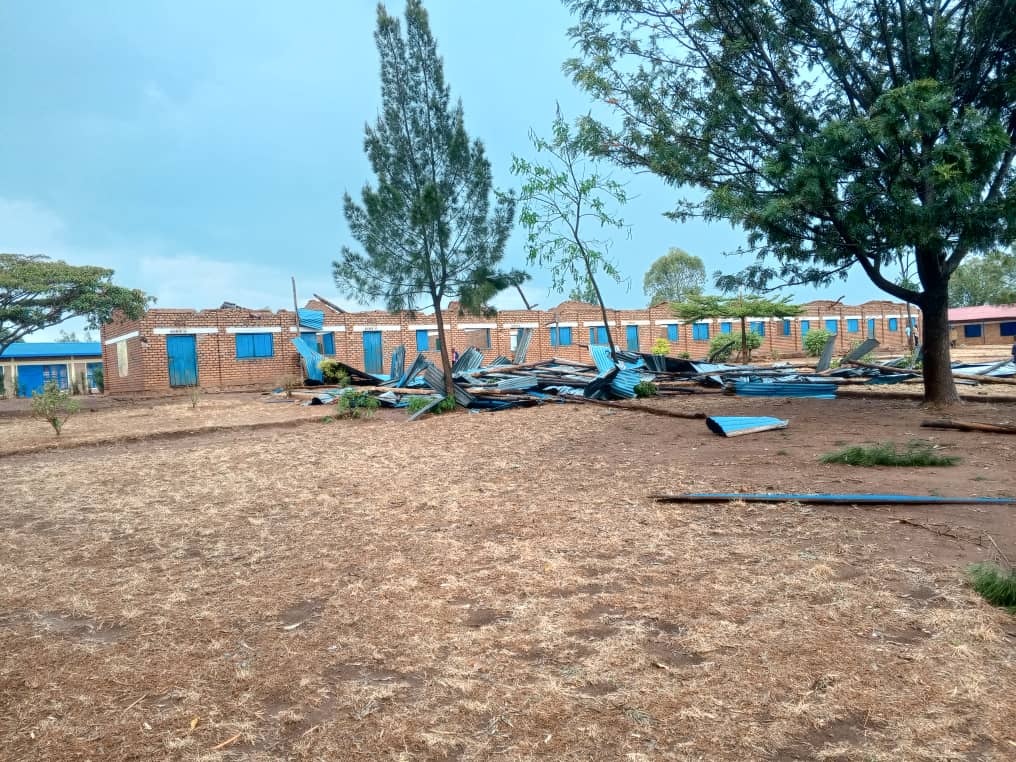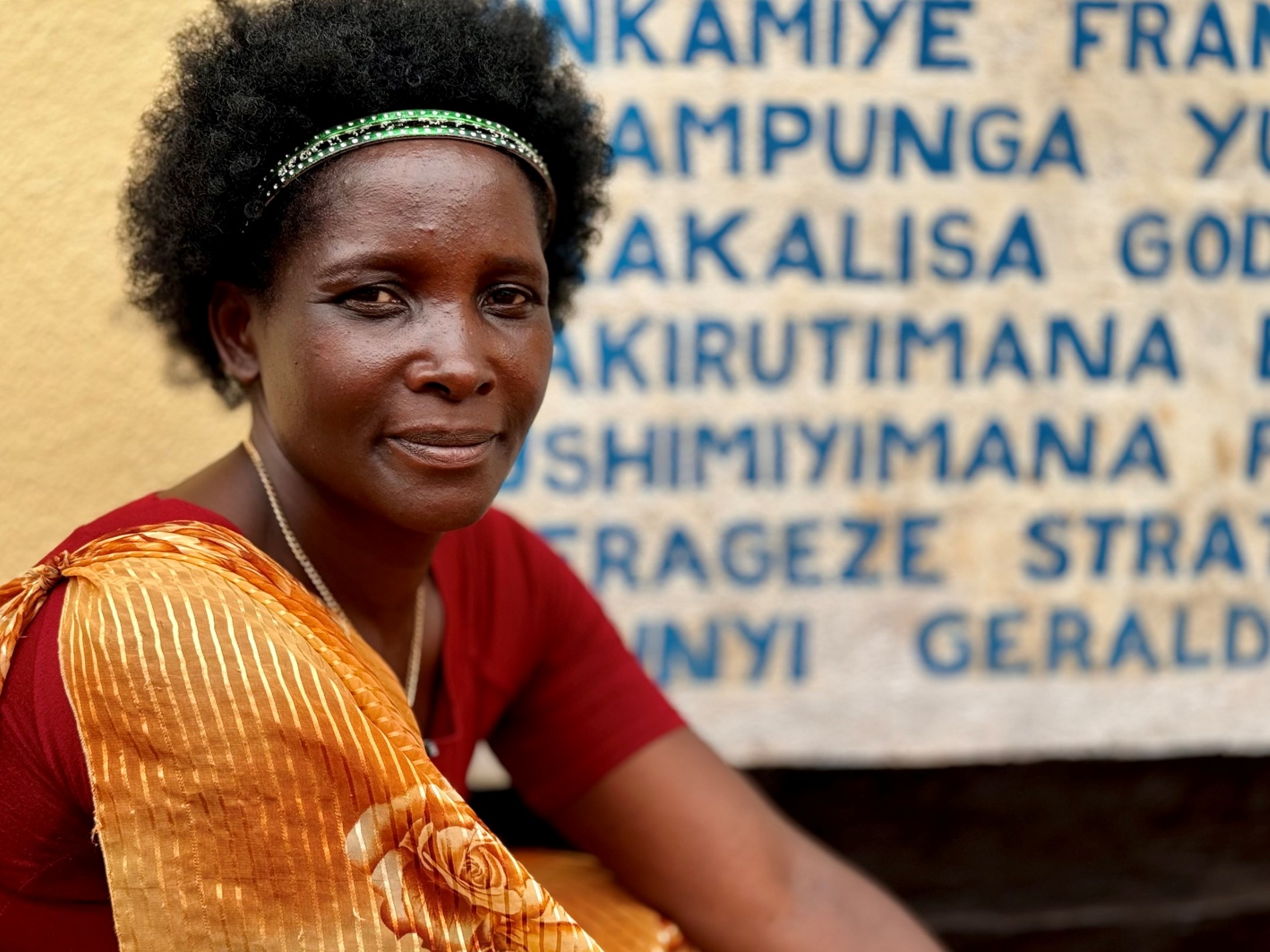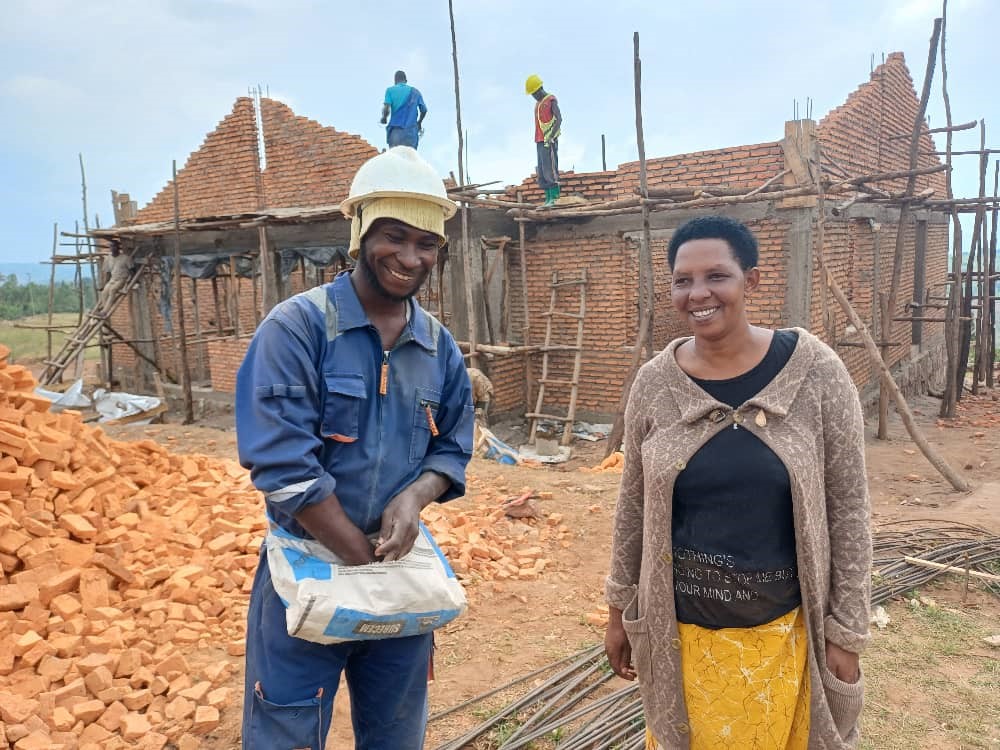“I didn’t want to see another mother needlessly die in childbirth” - Specioza Our organizing in Rwanda began in 2009 in the rural village of Mumeya, where mothers…
Rwanda: Confronting climate change in a unique partnership with government
Rwanda is especially vulnerable to climate change. Increasingly severe floods, droughts, and landslides are directly impacting life across the country, including the work that PICO Rwanda has done to build houses, clinics, schools, roads, and economic development projects in rural communities.
In Nyange, the kiln constructed by the community cooperative to bake roofing tiles was damaged beyond repair by a land slide. The school, which was recently constructed in Nyarubuye, had its roof taken off by severe winds. Mumeya farmers lost much of their corn crop to wind and rain.
Always resilient, PICO Rwanda communities are not only rebuilding and replanting, they are finding ways to respond to climate change. Leader-organizers like Specioza, Poline, Ezra and Charlotte are gathering people, young and old, to reflect on the reality of climate change and take action.
Reforestation is one key priority to make communities more resilient. Over the past year, leadership teams in ten villages have organized crews to plant over 45,000 trees. They’ve organized large-scale education campaigns in local schools so children are learning to protect their environment. Each child is committed to planting a tree.
Leaders have set a goal to plant 20,000 trees in 2025. They have forged a partnership with the Rwandan government, which has agreed to provide $2 for each seedling. PICO Rwanda’s cost for organizing these leadership teams to organize villages and schools to plant trees and protect the environment is $7,200 each year.
What makes this partnership between people and government work? The Rwandan government has clearly defined goals and plans to protect the environment. These plans call for community education and participation.
In most cases, the government moves people’s participation from the top down through government-organized events.
PICO Rwanda is different. Their organizing process begins with the people who come together and determine how they want to participate, what can be done to respond to climate change, what places need to be prioritized for reforestation, and what labor they will provide.
Because residents are initiating change, investing their labor, and engaging government officials, PICO Rwanda communities have a deep feeling of ownership over their communities and the environment. And they’re protecting the schools, health clinics, and roads they fought so hard to bring to their communities.



